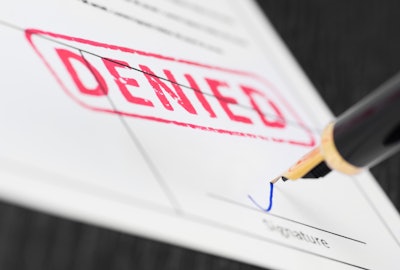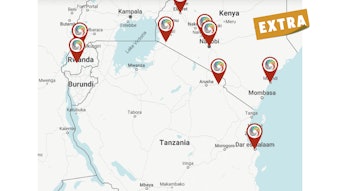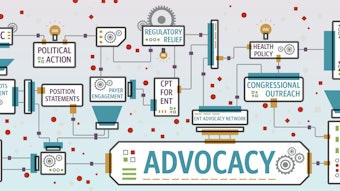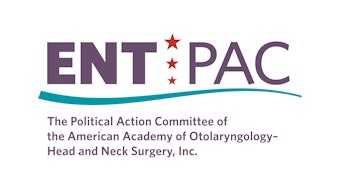Managing and Responding to Unfavorable Insurance Coverage Decisions
What to expect when you reach out to payers, and some tactics you can use to act on payment denials.

The Academy strives to be as supportive as possible in the areas of reimbursement and payment policy for our members. We have a team in place to assist with member inquiries and questions. We want to hear from you to know what kind of challenges you are facing. Here, we outline scenarios that the Academy can help with, what to expect when you reach out to payers, and some tactics you can use to act on payment denials.
So, You Have Received a Denial—What Now?
Read, Read, Read
First, be sure to read the entire denial, paying specific attention to any remittance advice on the claim. This advice should provide insight into why the payment was denied. You should also pay attention to any information related to resubmitting the claim, appealing the claim, and timely filing limitations. This is an area where dealing with commercial payers can be challenging because they frequently have different rules that must be followed. So, it requires some multi-tasking to interpret and juggle all of the different requirements.
Check for Missing Information
Next, review the case, the patient record, and documentation to determine that everything was submitted as intended—meaning that nothing was left off and there were no errant or missing details. Leaving out information is relatively easy to fix, as you can typically just resubmit with the explanation that something was left out.
Plan Your Next Move
Once you are confident that everything was submitted as intended, it is important to plan your next steps. You can appeal the decision with additional information, request a peer-to-peer conversation or, in some cases, you may want to contact the Academy next.
Appeals and Peer-to-Peer Conversations
If the denial was based on a lack of medical necessity or a question of documentation, you as the provider can submit an appeal that advocates for coverage for that specific patient and service with evidence. Every payer has a different process for appeals and peer-to-peer conversations; so, understanding this process is key. For example, some payers may accept an original letter, whereas others may have a form that must be filled out. Some payers may require you to go through and exhaust the appeal process before requesting a peer-to-peer conversation and review. The Academy has resources available to aid your appeal.
Coding Errors
Another common reason for denials is coding errors. CPT codes are complex, and they have specific rules for when they can be used, how often, with what other codes they can be used, what modifiers are needed, and so on. In many cases, commercial health plans follow CMS and the Medicare payment system rules, but not always.
If a claim is denied because of a coding issue, your first step should be to review the claim to ensure none of the required elements are missing. Do you have your diagnosis code(s)? Are any modifiers needed? Is all of the patient’s information correct? Once you have verified that all of the appropriate information is included on the claim, the payer’s coding rules should be examined to determine if the claim is not meeting one of their criteria.
If you are still stumped or have specific coding questions prior to billing, the Academy website contains a variety of topics covered under the CPT for ENT article library. The American Academy of Professional Coders is another great resource for coding advice, considered the “gold standard” for coding guidance.
How We Can Help
Academy staff are always available to assist with any member inquiry, but there are some limitations to what they can offer owing to scope and bandwidth. This next section will highlight some of the ways that they can help and what is needed from you to start the process.
First, did you know that the AAO-HNS has an online member forum—ENT Connect? This is a great place to ask questions and determine whether your peers are having similar issues and how they have solved them. Access to this forum is included with your annual membership. Posting on ENT Connect is a quick and invaluable way to learn from the experience of your Academy peers in various practice settings.
If you aren’t able to get the answer you need on ENT Connect, try reaching out to the Health Policy team at healthpolicy@entnet.org. After you reach out, the team will most likely respond with additional questions and requests. Below is a list of materials to have prepared in advance to help expedite the process.
- A copy of the payer policy being referenced.
- A copy of the past payer policy in the scenario where a policy change has occurred.
- The claim being denied (please redact all personal information for the patient).
- The documentation that was submitted for the visit (please redact all personal information for the patient).
- Any remittance advice, notes, or communications from the payer about the claim.
Different Approaches to Different Cases
Academy staff will try to “rebuild the case” to understand exactly what went wrong. In the case of a policy concern where the payer is either not following their stated policy or they are following a policy that is problematic for members, staff can often help. These advocacy efforts will differ based on the situation. Sometimes it means writing a letter or requesting a conversation; but occasionally it needs to go a step further and will involve the Academy’s legislative team or an insurance commissioner (if there is a law or regulation that is not being followed).
It is important to note that there are limitations in the support that the Academy can provide related to denials. The Academy does not staff professional coders or attorneys, and health policy staff are not trained clinicians. However, the Academy also has many resources that have been created and maintained by physician volunteers on its website that are available to members.
Helping Us Help You and Your Patients for the Long-Term
The Academy’s Health Policy Advocacy team works to provide solutions for members but, more importantly, to positively impact the field of otolaryngology from a policy and reimbursement perspective. The Health Policy Advocacy team tries to head off unfavorable policies before they become more widespread. By reporting individual issues, you are not only helping your practice, but also your fellow otolaryngologists across the country.
When we are united in our efforts, we are so much stronger than when we try to advocate alone!
If you need support or have a policy-related reimbursement question, please contact healthpolicy@entnet.org.




















